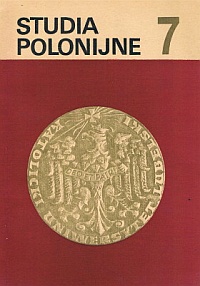On the Perspectives of Teaching Polish within the Polish-American Education (in the Chicago area)
Main Article Content
Abstract
The paper discusses some of the main factors that are most probable to determine ways of development of the Polish ethnic schooling abroad in the future. The analysis is based on the system of the so-called Saturday schools of Polish in the Chicago area.
Although an extensive research concerning the present state and the history of these schools has been done recently, still much relevant data pertaining to their needs remain unknown. The paper makes an attempt to justify the growing significance of three factors on which a lot of effort to avoid the Polish language loss among Polish-Americans seems to depend. These factors are as follows: 1. development of theory and methods of teaching Polish as a foreign language (TPFL); 2. educating of competent Polish teachers; 3. use of programs within the public education sphere. The basic change that the Saturday schools are undergoing now is connected with the increasing number of English-speaking children born in the U.S.A. of Polish background who, however, do not speak Polish at all. They must study it almost as any foreign language, in a manner similar to the way foreigners learn Polish. The author postulates that joint efforts on the part of applied linguists from Poland and from among Polish Americans be taken in order to introduce modern methods and materials for TPFL, to include it in the language policy and bilingual education programs in the U.S.A., to educate Polish teachers, etc. Provided these measures be taken, the Polish ethnic schools will not disappear.

